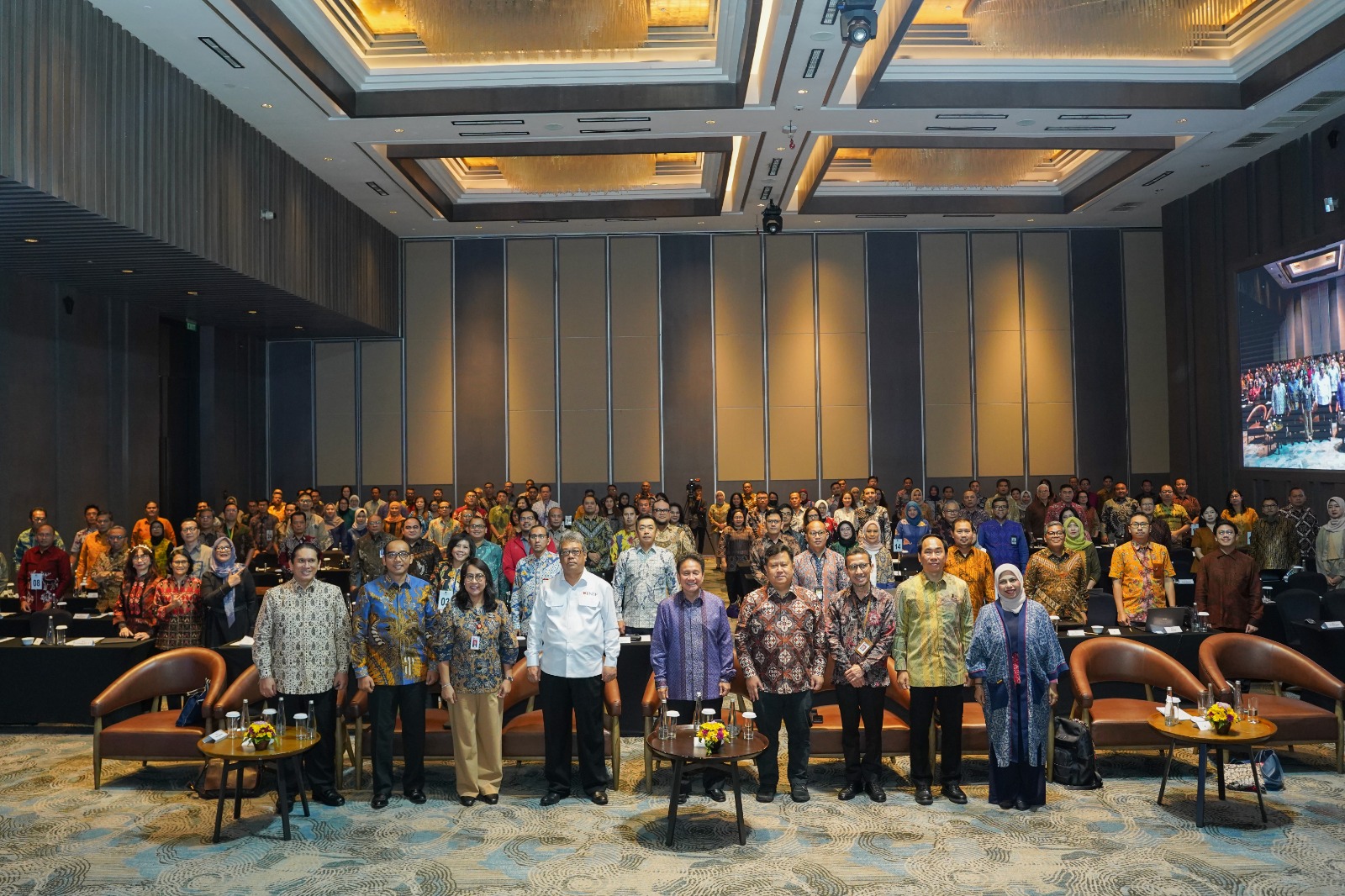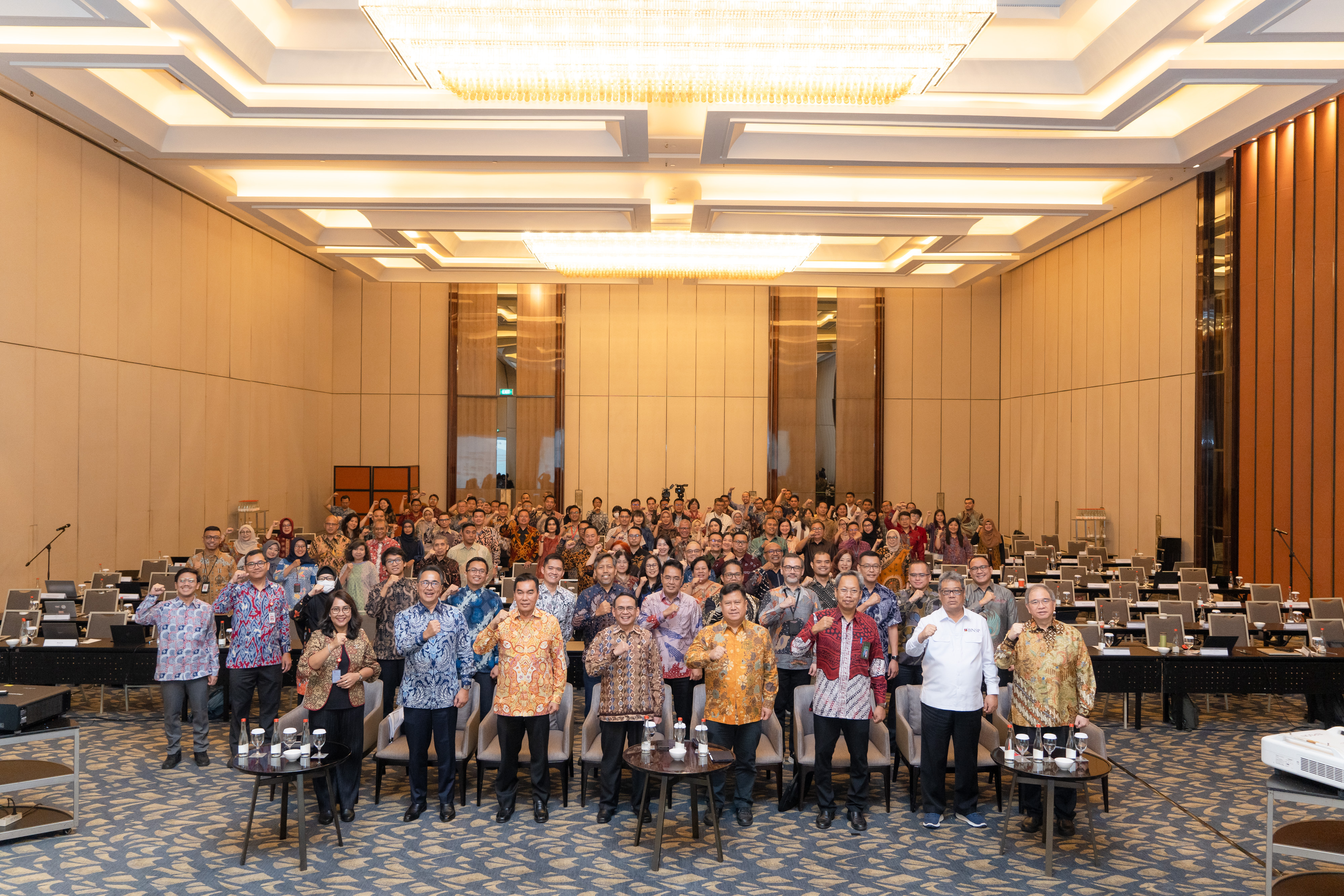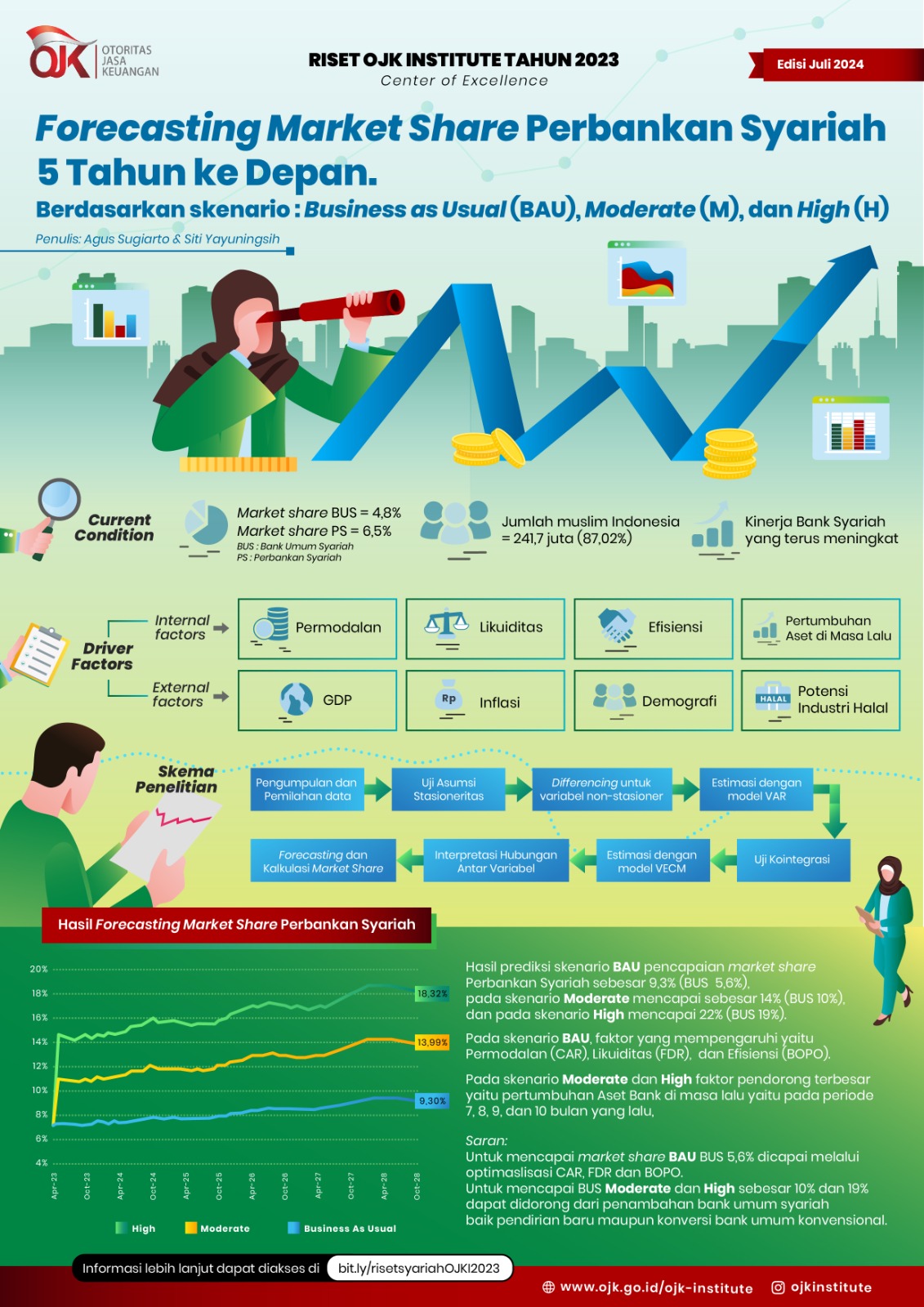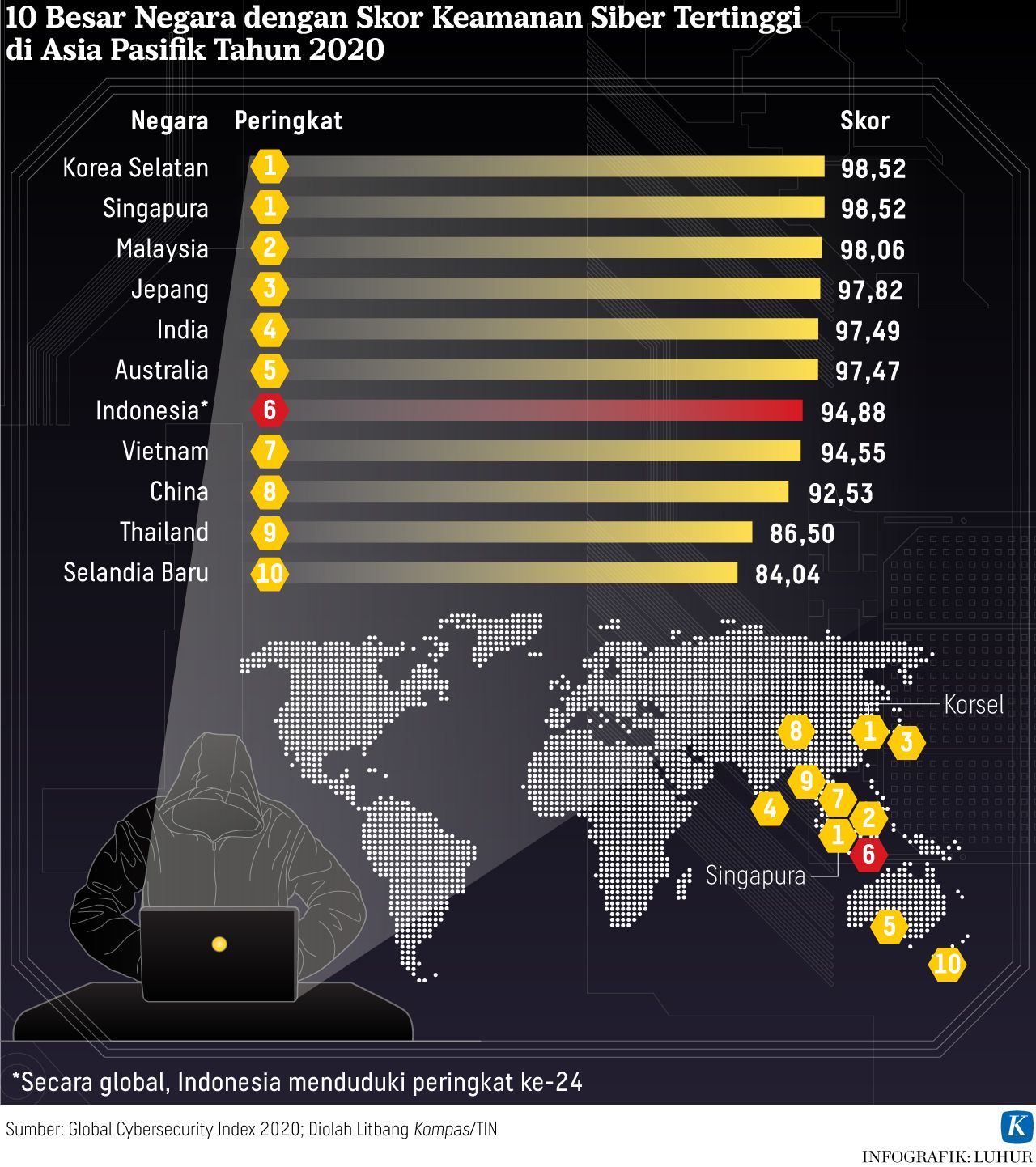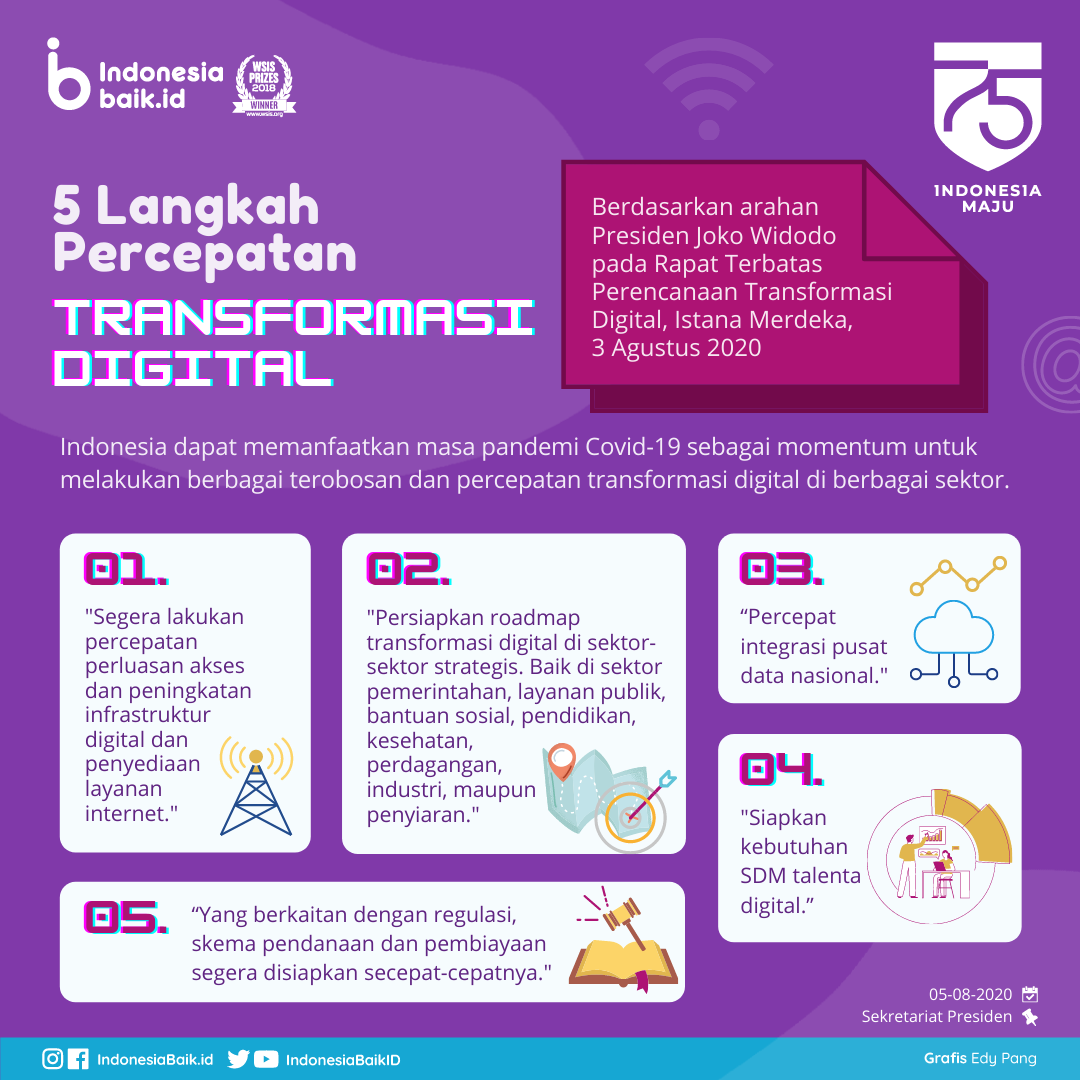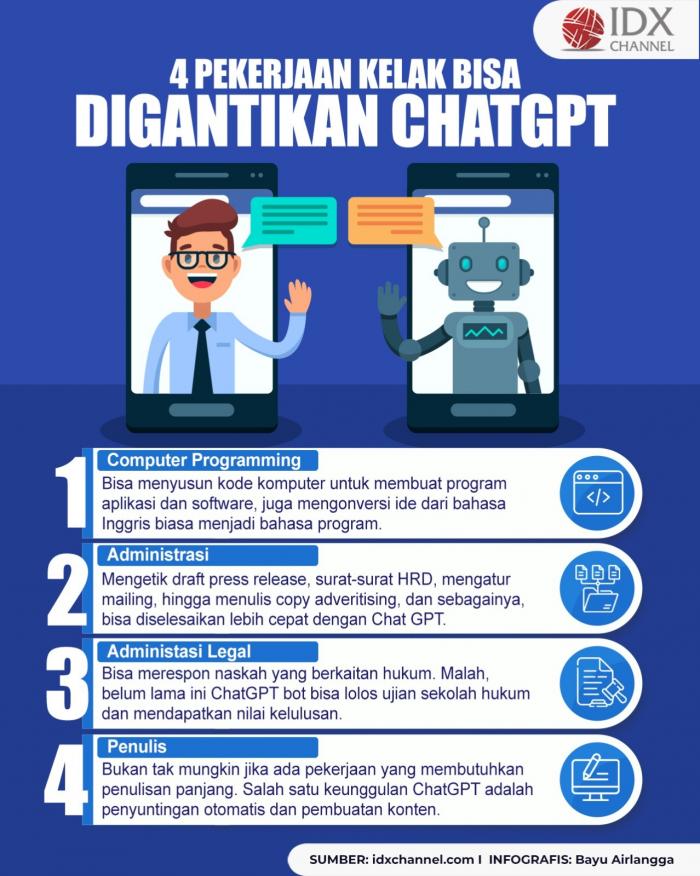Latest News
-
National Convention on the Draft Indonesian National Work Competency Standards (RSKKNI) for Banking Risk Management
Surabaya, 8 July 2024. OJK held the National Convention on the Draft Indonesian National Work…
-
Konvensi Nasional Rancangan Standar Kompetensi Kerja Nasional Indonesia (RSKKNI) Bidang Pembiayaan
Sebagai tahapan akhir dalam penyusunan RSKKNI, OJK Institute menyelenggarakan Konvensi Nasional…
-
Leaders face pressure to bring value to workers, survey finds
Over the past few years, organizations have faced increasing workplace challenges
-
RSKKNI Pre-Convention for Banking Risk Management
OJK implemented the RSKKNI Pre-Convention for Banking Risk Management which was attended by 95…
-
Towards Indonesia Emas 2045, Business Actors Need Digitalized HR Management Solutions
Indonesia will soon enter the golden generation, where 70 percent of Indonesia's population will be…
Latest Infographics
-
INFOGRAFIS RISET OJK INSTITUTE TAHUN 2023 Edisi Juli 2024
Pada tahun 2023, tim riset OJK Institute menyusun riset yang berjudul “Forecasting Market Share…
-
The Influence of Reference Interest Rates on Sectoral Stock Prices in the Indonesian Capital Market OJK Institute Research Infographics for 2023
In 2023, the OJK Institute research team compiled research entitled "The Influence of Reference…
-
Top Ten Countries with the Highest Cybersecurity Scores in Asia Pacific in 2020
Globally, Indonesia ranked number 24
-
5 Steps to Accelerate Digital Transformation
Was stated that digital transformation during a pandemic and in the next pandemic will structurally…
-
4 Jobs That Can Be Replaced In The Future ChatGPT: Does Your Profession Include?
Reportedly, the latest version of GPT Chat can be used to help create websites, music, coding, and…
Digital Transformation Requires Infrastructure, Human Resources and Security Aspects
- 27 Nov 2023

JAKARTA, KOMPAS - Strengthening digital infrastructure and increasing human resources are the main aspects to encourage digital transformation. On the other hand, protecting personal data is seen as the responsibility of business actors.
In 2022, the value of Indonesia's digital economy will be recorded at IDR 1,408 trillion or 8 percent of gross domestic product (GDP) in the same year. In the next five years, the digital economy is projected to continue to grow until it reaches IDR 3,216 trillion in 2027 or an increase of 128 percent. Thus, the digital economy is able to contribute 14 percent to GDP in 2027 which is estimated at IDR 23,533 trillion.
Deputy General Chairperson for Communication and Informatics (Kominfo) of the Indonesian Chamber of Commerce and Industry (Kadin) Firlie H Ganinduto said that the digital economy which continues to increase is expected to be a source of economic growth in Indonesia in 2045. Apart from that, the rapid growth of the digital economy will also bring Indonesia become a major player in the Southeast Asian market.
”The rapid development of the digital economy in Indonesia must be balanced by strong and adaptive digital infrastructure. "So, there really needs to be continuity of network connectivity, digital innovation, digital talent supported by government support, whether through regulations, incentives or collaboration," said Firlie at the 2023 Indonesian Chamber of Commerce and Industry's National Working Meeting (Rakernas) for Communications and Information, in Jakarta, Monday. (19/6/2023).
Based on data from the Telecommunications and Information Accessibility Agency (Bakti) of the Ministry of Communication and Information, there are still 12,548 villages/sub-districts throughout Indonesia that are not yet served with a 4G signal. Of the 12,548 villages/sub-districts, 9,113 villages/sub-districts are included in the underdeveloped, frontier and outermost (3T) categories and 3,435 villages/sub-districts are included in the non-3T category.
According to Firlie, digital growth in the digital economy sector is currently still not accompanied by adequate digital literacy and digital finance. Based on the 2022 Indonesian Digital Literacy Status survey, Indonesia received a score of 3.54 points or is included in the medium category.
Chairman of the Indonesian Chamber of Commerce and Industry, Arsjad Rasjid, explained that there is still a lot of homework for Indonesia to encourage digital transformation. One of them is digital talent, which is still considered inadequate.
”In the field of human resources (HR), Indonesia also still lacks between 400,000 and 500,000 digital talents per year. "In fact, by 2030, it is estimated that Indonesia's need for digital talent will reach 9 million people," said Arsjad in his virtual speech.
Apart from that, cyber security is still a challenge. Arsjad said, during the 2020-2021 period, cyber security threats continued to increase by 231 percent.
Director General of Informatics Applications at the Ministry of Communication and Information, Semuel Abrijani Pangerapan, added that from 2019 to June 2023, there were 94 cases of suspected personal data leakage handled by the ministry. Based on the results of forensic assessments and tests on the 94 cases, 28 cases did not include violations of cyber personal data protection, but rather system weaknesses.
According to Samuel, his party is currently preparing derivative regulations for Law Number 27 of 2022 concerning Personal Data Protection (UU PDP) in the form of government regulations and presidential regulations. If previously violators only received warnings and recommendations, the PDP Law, which is targeted to come into effect next year, also regulates fines.
"The draft is almost complete and will be discussed first with the committee from the relevant ministries/institutions. The target is to receive input by September 2023. Then, in October 2024 the PDP Law will apply fines. "Indeed, people are given time to adjust because this law was passed in October 2022," he told reporters at a press conference.
Responsibility
Acting Director of Informatics Application Governance, Teguh Arifiadi, explained that with the existence of the PDP Law, corporations (electronic system operators) are criminally responsible for the data they manage. This is because personal data that falls into the realm of privacy refers more to human rights, not to companies.
”There is a new perspective regarding personal data protection. We must understand that personal data is no longer an asset, but a trust or responsibility. "The greater the personal data that is managed, the greater the responsibility," he said in a discussion regarding the readiness of Indonesia's digital infrastructure to support the PDP Law.
In the PDP Law, corporations will be subject to a criminal fine of 10 times the fine for an individual every time there is an incident. Then, the supervisor or regulator can also impose an administrative fine of 2 percent of the corporation's annual income per incident.
According to Teguh, personal data cannot be owned by a person or legal entity but rather is attached to the data subject himself. Furthermore, personal data subjects have full control over the personal data they possess so that the confidentiality of that personal data becomes the responsibility of the organizer when it is handed over by the data owner.
Even though technological development has entered an era of convergence, continued Teguh, regulations are still partial. Overall, there are four regulations that support technology, namely those related to media and information, communication, information and electronic transactions, as well as the protection of personal data.
“Technology has converged, but regulations have never converged. The government understands this and previously, in 2010, a bill regarding ICT Convergence was prepared which was also discussed for a year. "This regulation did not materialize because there were sectoral egos and political factors because in Indonesia the legal politics are more complicated than the legal substance," said Teguh.
Tags :
- SDM
- SDM SJK
- SDM DIGITAL
- SUMBER DAYA MANUSIA
- HR
- HUMAN RESOURCES
- DIGITAL HUMAN RESOURCES
- DIGITAL HR
- DIGITAL HRM
- SDM
- SDM SJK
- SDM DIGITAL
- SUMBER DAYA MANUSIA
- HR
- HUMAN RESOURCES
- DIGITAL HUMAN RESOURCES
- DIGITAL HR
- DIGITAL HRM


